“You don’t need to have all the answers” - psychologist reveals how to talk to kids about tragic news stories
Talking about 'big topics' can be difficult, but expert tips can help you better navigate those hard conversations
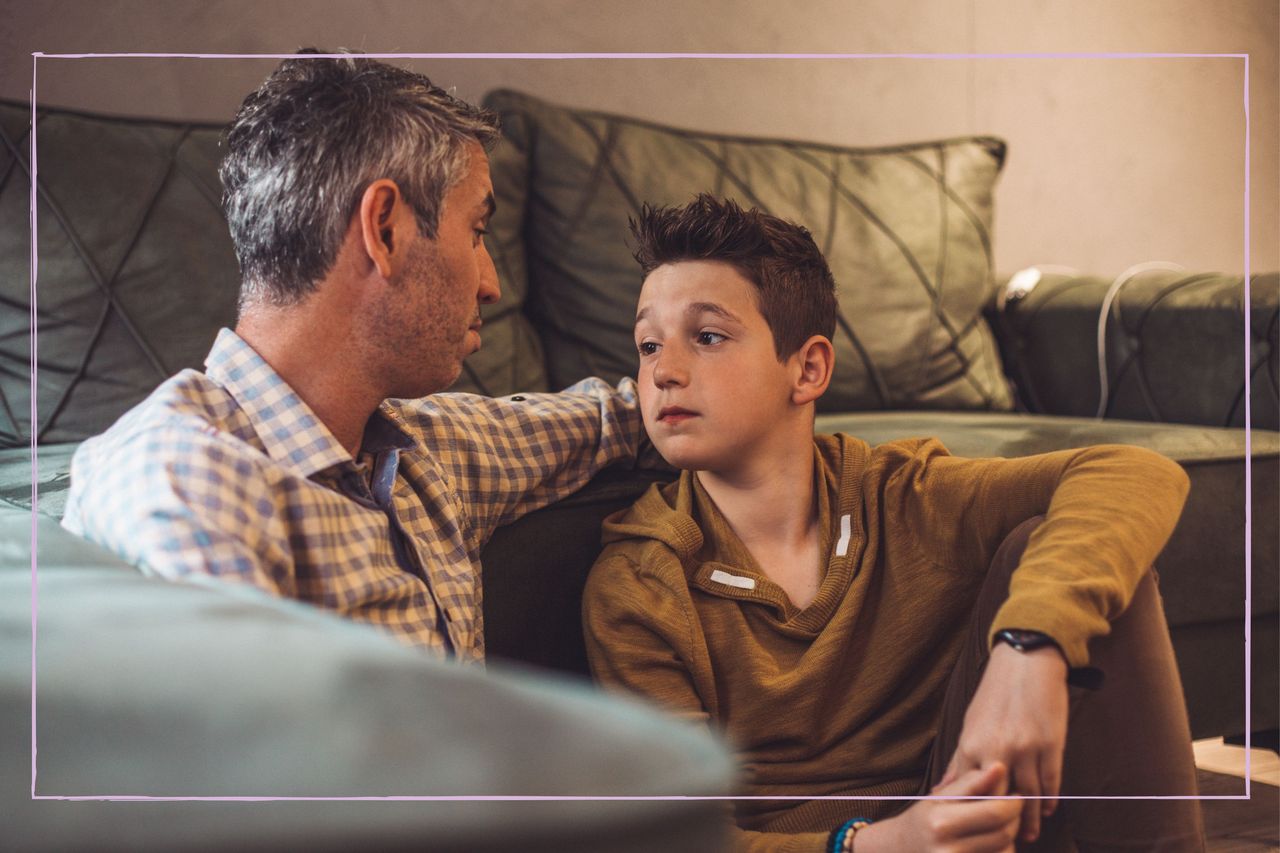
In the age of social media, children are exposed to all sorts of news stories they were once protected from. But how should parents approach talking to kids about the tragic events they may hear about? A psychologist shares her thoughts.
Keeping bad news from reaching kids' eyes and ears is more difficult now than ever before. In the age of social media, it's not just restricted and unsafe content kids are coming across at an alarming frequency, but news stories covering tragic events that, while broadcast on TV, are inappropriate when kids' brains are still developing and they can't understand properly what they're seeing.
So should kids be protected from the news?
"Yes, as much as you can and is realistic," psychologist Dr Martha Deiros Collado said on Instagram. But it's almost inevitable that kids will hear about big news events, whether it's on social media or the school playground, so what should parents do?
Their interest in these tragic events, Dr Martha says, stems from curiosity. But you don't have to satisfy their interest completely and should share only what is age appropriate.
For children up to the age of eight, the expert says, they won't understand the true meaning of words usually associated with tragic news stories such as 'death' or 'attack' and this makes explaining things to them unhelpful and unnecessary. But for those aged eight and above, "Children have greater access to technology and they understand death is final. They are more likely to understand 'knife attack' and feel scared for themselves and others," Dr Martha explains.
For these reasons, she recommends only talking to your kids about news events if they've asked about them first. And, if they do, she's shared the seven most important things to keep in mind when having conversations on big topics.
GoodtoKnow Newsletter
Parenting advice, hot topics, best buys and family finance tips delivered straight to your inbox.
7 tips for talking to kids about tragic news stories
- You don’t avoid the conversation if they bring it up or it affects the personally.
- You lean in and listen to your child
- You offer them a safe space for all their feelings
- You reassure them they are safe (and you are too)
- Stay honest. What you don't tell them they will make an answer for or someone will tell them. And it's always worse when it's not come from you.
- Keep it simple and age appropriate
- Normalise all feelings
A post shared by ✨Dr Martha Deiros Collado, Clinical Psychologist (@dr.martha.psychologist)
A photo posted by on
Dr Martha's biggest piece of advice, though, is that you don't have to have the answers. "A child who asks a question has already considered an answer. Focus less on having answers and more on listening to your child," she said. Instead of giving a response to a question, ask your child what they think and feel about what they've heard and let them talk about their worries, reassuring and supporting them.
"You do not need to have all the answers. Your presence and offering a safe space to talk is the most important," she added.
She gives the example of a child asking 'will this happen again' after hearing of a tragic story. In response, she recommends saying something along the lines of, "It sounds like you are feeling scared. I am too. It's normal to feel this way. What I know is that we are safe right now. What might help you feel safe? What can I do? Let's work it out.
Parents were quick to take to the comments section and praise Dr Martha for her insight, sharing how her tips have already been helping. One parent shared, "Thank you for this. My seven-year-old caught the news this morning and had so many questions. I've been worried all day I handled it badly and this has helped reassure me. There were more questions tonight before bed so it has been something she has obviously been processing today."
Another added, "This is the reason the news is never on in my home or car and I ask all my family to do the same while they are caring for the kids. They don’t need to know about these atrocities at this young age."
There are plenty of expert tips and tricks that can make navigating parenting a little bit easier, like the 8 expert tips to teach kids emotional intelligence, and why it's never too late for teenagers. There are also other parents to learn from like the mum who has shared the 9 things she's doing to teach her teenage son about 'toxic masculinity' and the two mums who've shared their very different opinions on whether or not it's it's ever OK to discipline other people’s kids.
Charlie Elizabeth Culverhouse is a news writer for Goodtoknow, specialising in family content. She began her freelance journalism career after graduating from Nottingham Trent University with an MA in Magazine Journalism, receiving an NCTJ diploma, and earning a First Class BA (Hons) in Journalism at the British and Irish Modern Music Institute. She has also worked with BBC Good Food and The Independent.
-
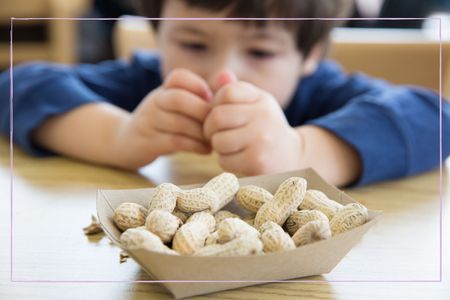 12 things parents of allergy children really want everyone to know
12 things parents of allergy children really want everyone to knowWe spoke to some parents who have children with allergies - they want everyone to know just how serious and debilitating it can be when your child suffers allergic reactions to food.
By Lucy Wigley Published
-
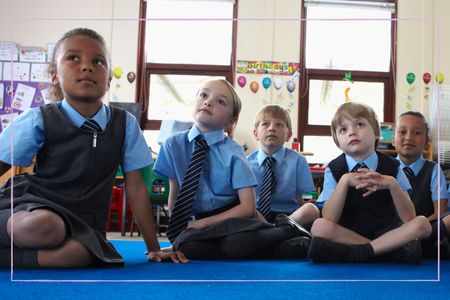 Want to feel old? Watch hilarious video of kids baffled by the school tech their parents used
Want to feel old? Watch hilarious video of kids baffled by the school tech their parents usedMost schoolchildren have no idea what the common classroom tech from just a generation ago was used for, let alone how to use it
By Charlie Elizabeth Culverhouse Published
-
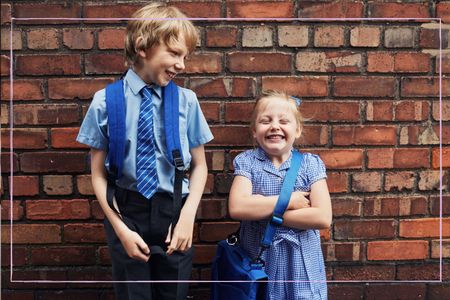 Back to school photo checklist - here's what parents need to think about first, from an expert
Back to school photo checklist - here's what parents need to think about first, from an expertBefore you post that adorable back to school photo online for your friends and family to see, a parenting expert wants you to think carefully about how much the picture reveals.
By Lucy Wigley Published
-
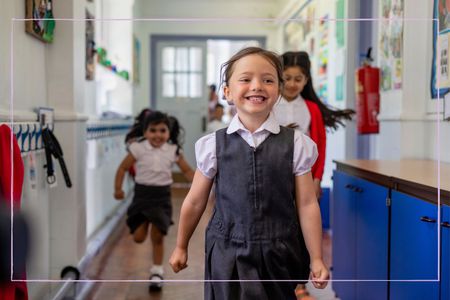 4 phrases to help kids settle on first day back at school, according to a child development expert
4 phrases to help kids settle on first day back at school, according to a child development expertIt's natural for kids to struggle with some 'separation anxiety' when returning to the classroom, and dealing with it is so much easier with expert insight
By Charlie Elizabeth Culverhouse Published
-
 Oasis reunite - the 15 facts your kids need to know about 90s band
Oasis reunite - the 15 facts your kids need to know about 90s bandEducate your kids on music's most infamous falling out and get them just as excited as you are for the Oasis reunion
By Charlie Elizabeth Culverhouse Published
-
 5 surprising ways rushing your kids out the door can be damaging, according to experts
5 surprising ways rushing your kids out the door can be damaging, according to expertsAre you always rushing your kids out the door? Life is a constantly hectic schedule and although you need to be places on time, it can actually be damaging to kids.
By Lucy Wigley Published
-
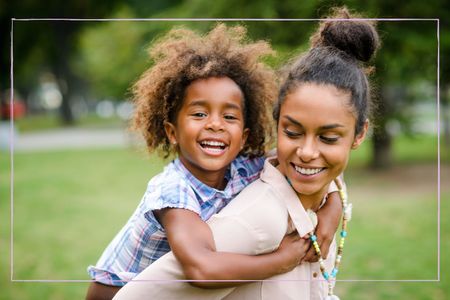 10 ways Millennial parents are ‘breaking the cycle’ - and teaching kids life lessons they were never taught
10 ways Millennial parents are ‘breaking the cycle’ - and teaching kids life lessons they were never taughtBeing a 'cycle-breaker' is vital for parents who want their kids to learn life lessons they were never taught
By Charlie Elizabeth Culverhouse Published
-
 Plans to teach children how to spot ‘disinformation, fake news and putrid conspiracy theories’ in schools unveiled
Plans to teach children how to spot ‘disinformation, fake news and putrid conspiracy theories’ in schools unveiledIn a bid to tackle how children interpret what they see online and how they spot fake news, the government has announced how this will be handled in schools.
By Lucy Wigley Published